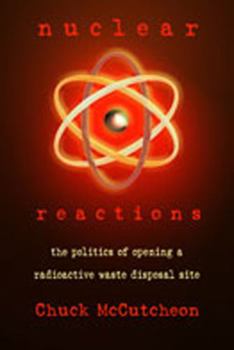Nuclear Reactions: The Politics of Opening a Radioactive Waste Disposal Site
The Waste Isolation Pilot Plant (WIPP), located beneath the desolate flatlands near Carlsbad in southeastern New Mexico, is the first facility of its kind in the world--the most elaborate and expensive landfill opened to date that permanently houses mankind's deadliest garbage. The project is intended to entomb, in a salt formation 2,150 feet underground, four decades' worth of protective gloves, clothing, and other items contaminated with plutonium and other radioactive materials used in building nuclear weapons. The nuclear waste--enough to fill more than sixty-five football fields--is sent to WIPP from U.S. Department of Energy sites in Colorado, Idaho, South Carolina, Washington, and elsewhere. The plant is regarded both as a coda to the Cold War legacy of weapons production and as a prototype for future environmental cleanup projects. Although WIPP has won widespread scientific and political support, it has been a quagmire of conflicting views about national energy policy. Technical and environmental questions dogged it long before being built, and debates over its use have continued since its opening in 1999. This book marks the first effort to trace WIPP's evolution comprehensively and impartially, from its earliest days as the brainchild of a group of local residents eager to create jobs through two decades of scientific studies, political decisions, environmental protests, and court challenges. It includes interviews with and character sketches of politicians, environmentalists, and scientists and explores the lessons that this hotly divisive project can teach us.
Format:Hardcover
Language:English
ISBN:0826322093
ISBN13:9780826322098
Release Date:September 2002
Publisher:University of New Mexico Press
Length:243 Pages
Weight:1.20 lbs.
Dimensions:0.9" x 6.0" x 9.0"
Customer Reviews
1 rating
Toxic things & public policy
Published by Thriftbooks.com User , 21 years ago
Chuck McCutcheon is an old classmate of mine, but I have to say that I found this to be a fine work. His book is direct and forceful in presenting the lengthy story of the creation of a facility to house radioactive waste. The author almost never bogs down in the technical or mundane even as the people he is writing about are doing exactly that. There's a lot to be learned from this book, namely, how Americans deal with periodic reminders that the unpleasant (or, in this case, deadly) byproducts of our military and technical might need to be dealt with, someway, somehow, somewhere.





